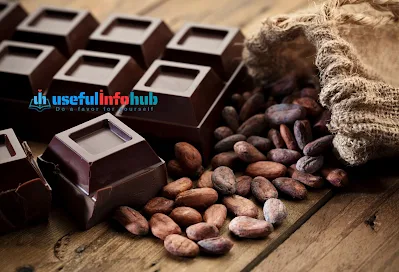Turmeric, which can be used in meals or consumed as tea, cleans the vessels and also eliminates problems such as arteriosclerosis.
ALMOND
Almond, which is a panacea, cleans the blood vessels in the veins and makes the heart healthier. It is recommended as a vascular and heart-friendly food thanks to its monounsaturated fat, fiber and antioxidant contents.
OLIVE OIL
Olive oil, one of the key nutrients for a healthy life, reduces the risk of cardiovascular diseases by 50 percent with regular use. Olive oil, which is frequently recommended by experts, protects the heart and eliminates diseases such as blood pressure, thanks to the antioxidants it contains.
CINNAMON
Cinnamon is a full storehouse of antioxidants, thanks to its ability to lower and balance blood sugar. In this way, it cleans the vascular pathways leading to the heart and prevents the formation of blockages. Cinnamon, when consumed as much as 1 teaspoon a day, reduces the risk of vascular disease by 26 percent.
OAT
Oatmeal, which is a complete source of fiber, cleans the cardiovascular system when consumed regularly. In addition, oats, which lower cholesterol, are extremely beneficial for health, especially when consumed at lunch.
BROCCOLI
Broccoli, which is a source of iron, vitamins and minerals, is extremely rich in vitamin K and fiber. It balances the calcium rate in the veins and eliminates cholesterol.
Veins clogged due to increased cholesterol and excessive fat accumulation prevent adequate blood flow. There are some medicinal herbs and natural methods that can be used to open vascular blockages. Vascular occlusion brings with it very serious illnesses. Here are the foods that cleanse the veins. Here are the foods that cleanse the veins.(alert-success)
Tomatoes, walnuts and even chickpeas. Some foods have the power to protect blood vessels and can largely prevent heart diseases. Here are 5 foods that improve blood circulation and protect vessels.
GARLIC
Garlic contains many chemicals in its structure. The most important chemical is allicin. It contains vitamins A, B1, B2, B, C and various minerals.
It also increases the production of glutathione, an important antioxidant in the body.
CHICKPEAS
Chickpeas, which contain only 163 calories per 100 grams and are one of the best foods that increase satiety, reduce the risk of cardiovascular diseases by 2 to 4 times. Chickpeas have a low glycemic load, which is a calculation method that takes into account the amount and quality of carbohydrates.
A blood sugar level that is too high clogs the arteries, increasing the risk of heart attack and stroke. Chickpeas have antioxidant properties and protect the heart, thanks to their manganese and copper content, which are nutrients that help reduce the effect of free radicals in the oxidation process of cells in the body.
MACKEREL
Omega 3 fatty acids found in mackerel are a real helper for cardiovascular health. With 1.2 g of omega 3 (EPA and DHA) per 100 grams, mackerel provides the body with more than 2 times the daily intake of EPA and DHA. Studies have shown that omega 3 consumption greatly reduces the risk of cardiovascular diseases.
These fatty acids help fight the formation of blood clots by affecting the elasticity of the vessels and preventing inflammation within the body. Mackerel has antioxidant properties as it is also rich in selenium. This mineral prevents the formation of free radicals in the body. Excess of free radicals causes cardiovascular diseases, especially since they damage red blood cells.
DARK CHOCOLATE
Cocoa contains flavonoids such as epicatechin. These antioxidants are substances that protect the body from external aggressors. These especially reduce the formation of bad cholesterol and clots that clog the arteries. They prevent increases in blood pressure levels and support cardiovascular health. Flavonoids are found in large quantities in dark chocolate. Milk chocolate contains very little, while white chocolate contains none. Therefore, dark chocolate containing at least 70 percent cocoa should be preferred.
TOMATOES
Research shows that lycopene, an antioxidant that gives tomatoes their red color, protects the heart against the formation of blood clots. This antioxidant is found in higher amounts in cooked tomatoes. For this reason, it is recommended to eat tomatoes cooked. However, since peeling them can greatly reduce the lycopene content, consumption with their shells is recommended.
Atherosclerosis is a blockage of a blood vessel, usually due to atherosclerosis or a clot. The clot that causes the blockage often develops in areas of the arteries that are narrowed by atherosclerotic plaques. (alert-success)
What are the types of blood vessels in your body?
There are basically three types of veins in our body. These veins can be summarized as follows:
1. Arteries or arteries, which play an important role in carrying oxygen and nutrients to the tissues and have a strong blood flow rate due to their proximity to the heart.
2. Veins or veins responsible for sending and removing harmful substances and carbon dioxide produced in the tissues to the relevant areas
3. Capillaries or capillaries, which are located between these two vessels and where the exchange of nutrients and oxygen in the tissues takes place. Due to various events occurring in these vessels, elements that block the lumen of the vessel arise.
Among the most common of these mechanisms is atherosclerosis, popularly known as atherosclerosis.
Vascular occlusion brings with it many deadly diseases. Disruption in any part of the vascular system that provides circulation between the heart and organs can cause a heart attack. In this sense, cardiovascular-opening herbal medicines should be consumed after consulting a doctor. If you suffer from vascular occlusion, you can learn the benefits of the best vascular opening plant species and how they are applied in this article.
What are the Best Vascular Plants?













